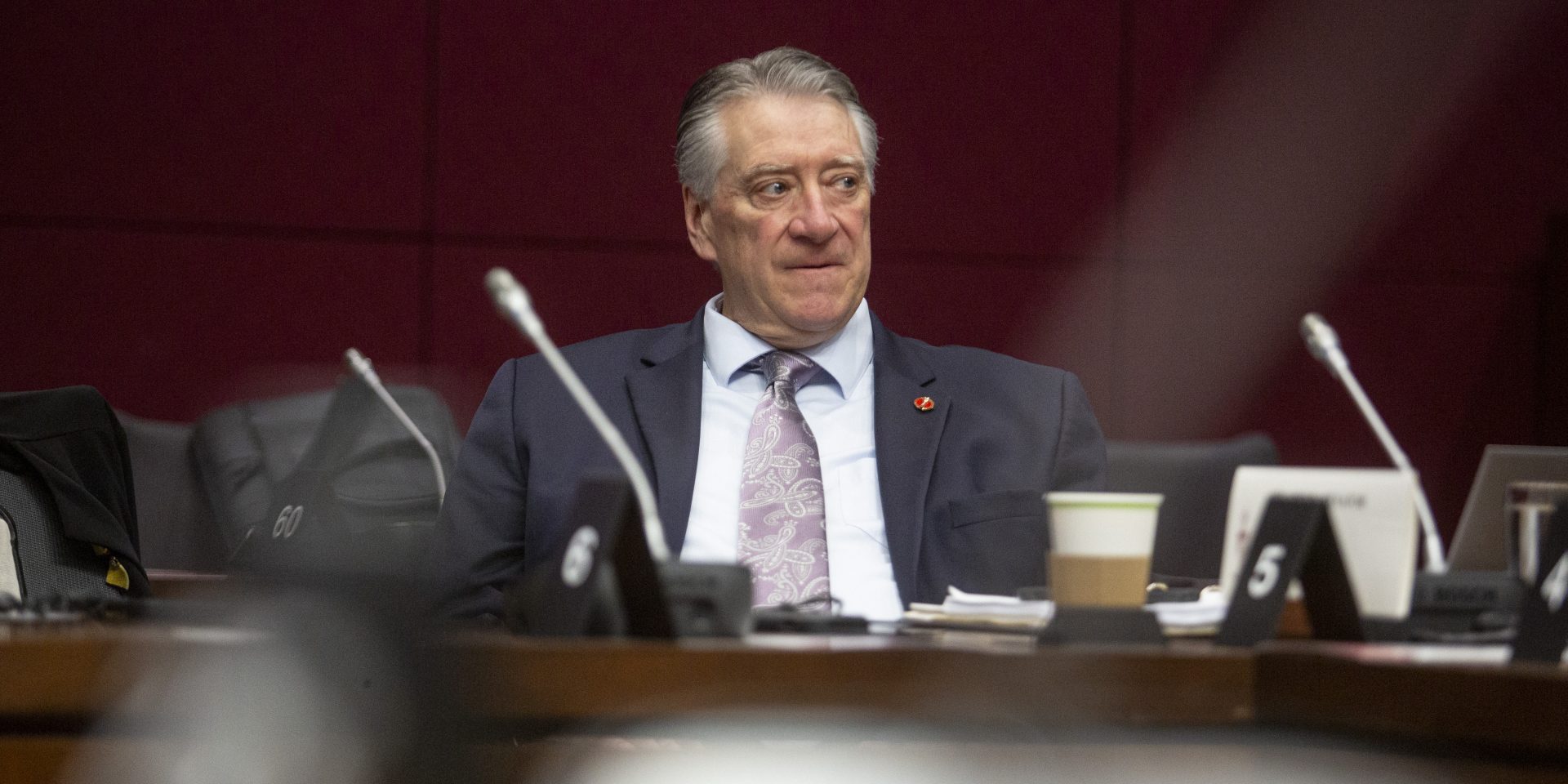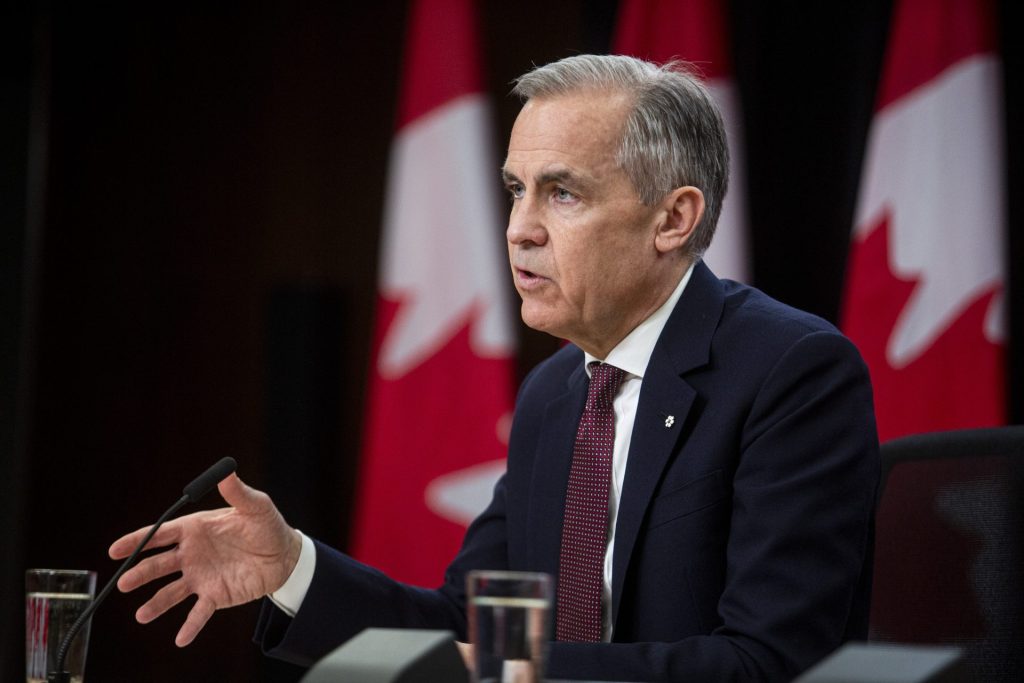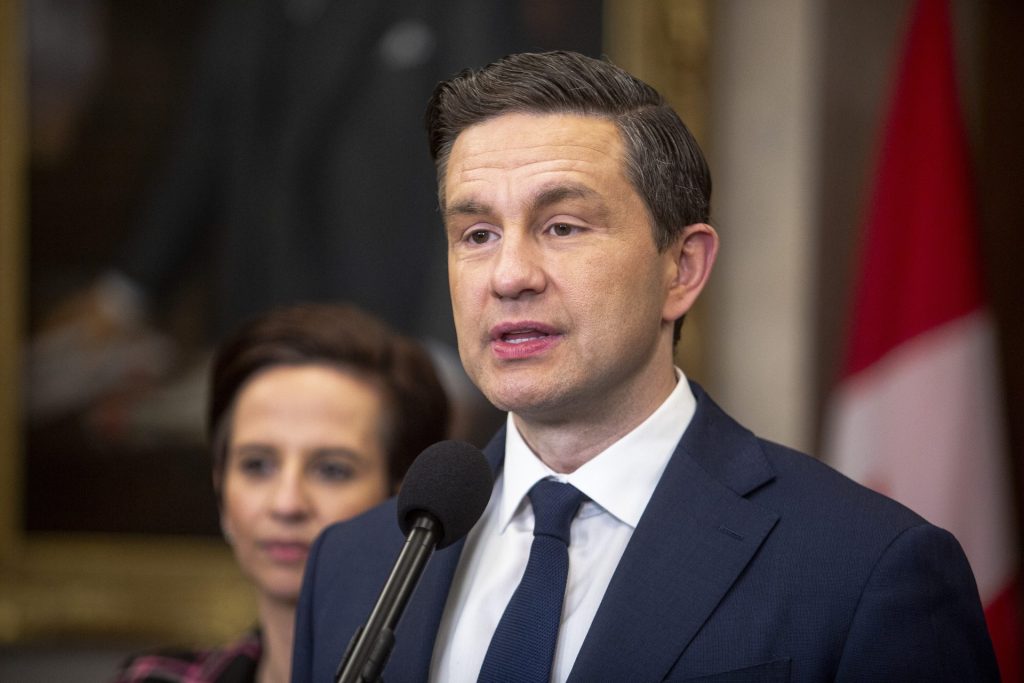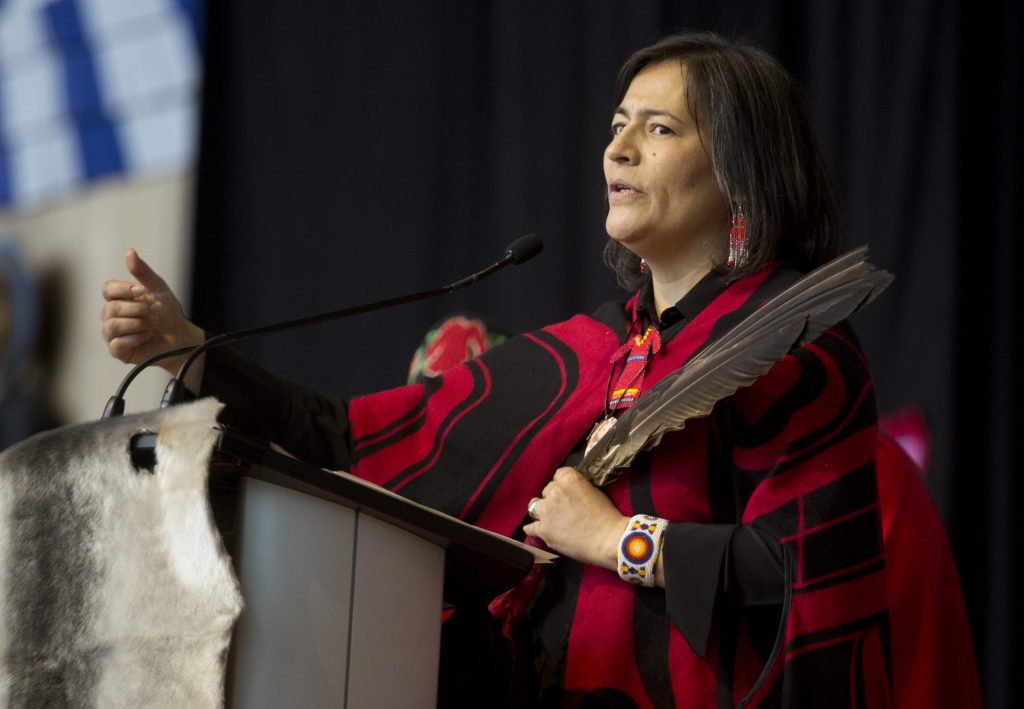‘A different tone, even in the Senate’: Red Chamber prepared ‘to get business done’ to handle Carney’s quick legislation pledges, says Sen. Tannas

With Parliament’s summer recess only a few weeks away, Prime Minster Mark Carney is working to pass legislation to deliver a middle-class tax cut “immediately,” and remove interprovincial trade barriers by Canada Day—something that could see the Senate grappling with multiple pieces of legislation to scrutinize and turn around on a tight deadline.
Canadian Senators Group (CSG) Leader Scott Tannas (Alberta) said despite the busy schedule, he anticipates that the current session in the Red Chamber will be different than the previous one, saying there is a “different tone” from both the government and the 104-member Senate—an urgency and willingness to “get business done.”
“I don’t anticipate in this session that it will be as stormy as others,” Tannas told The Hill Times.
Tannas, who leads the 21-member CSG, said there’s a “real sense of wanting to get business done in the proper way, in an efficient way, but in an effective way. I’m very optimistic that that’s what we’ll see.”
Tannas pointed to Carney’s (Nepean, Ont.) mandate—a strongly positioned minority government only three seats shy of a majority—saying that Canadians have given the government and Upper Chamber “focus” to guide their work.
“I think the country, in their wisdom, has given everybody some focus,” Tannas said. “This is a government that has a very large segment of the population that supports its agenda—and there’s also a very significant portion of the population that have concerns. … [But] there’s a focus to it. … Maybe I’m being overly optimistic, but … there’s certainly a different tone, even in the Senate.”
Carney led the Liberals to a historic fourth consecutive government largely because he pitched himself as the front-runner to face United States President Donald Trump, and strengthen Canada’s economy amid a period of economic uncertainty rocked by a trade war and ongoing threats to Canada’s sovereignty.

One of Carney’s promises—pitched repeatedly on the campaign trail, and in his first post-election press conference—was eliminating barriers to free trade across the provinces by Canada Day, a measure that could increase Canada’s GDP per capita by up to four per cent, according to the 2024 fall economic statement. But the prime minister has also been vague about the details of that deadline, with the Throne Speech addressing the removal of “all remaining federal barriers to internal trade and labour mobility,” but only promising that the government would “introduce legislation” by that date—perhaps in reference to plans for the House of Commons, while making no mention of timelines in the Senate.
Carney has also promised to deliver a middle-class tax cut “immediately” to address affordability and cut the lowest marginal personal income tax rate from 15 per cent to 14 per cent—also promised to come into effect on Canada Day. A ways and means motion to do that was tabled on May 27.
Tannas called Carney’s July 1 deadline “a little bit concerning,” noting that the Senate will also need to pass the main estimates—documents outlining the government’s planned spending for the current fiscal year that require parliamentary approval—to grant the government funding, before moving onto Liberal-sponsored legislation.
The main estimates are already facing resistance from the opposition in the House. Conservative Leader Pierre Poilievre said on May 30 that his party would be voting against the mains, citing the increased spending—up from $449.2-billion to $486.9-billion compared to the previous year’s main estimates—and the government’s decision to forgo tabling a spring budget, instead opting to present one in the fall. This move will test the strength of Carney’s minority in the House, as the Liberals will need at least three votes from members of third parties to pass the estimates.

Carney’s approach distances himself from Trudeau, say strategists

The swift speed at which Carney is planning to pass legislation is ambitious. But Olivier Cullen, a former Liberal staffer, said he doesn’t think the prime minister’s lack of parliamentary experience will put him at a disadvantage for navigating his legislation through the House or the Senate.
“This man is savvy,” Cullen, director of strategy at Blackbird Strategies, told The Hill Times. “He’s headed up two central banks. He’s been a bureaucrat. He’s worked at the senior levels of the Department of Finance. … He might be new to the House of Commons, and might be new to politics … but Mark Carney understands government, and he understands how it works.”
When asked about Carney’s plans to pass legislation through the House and the Senate in only a few weeks before Parliament’s break, Cullen said that Carney is moving to position himself as a “doer” and distance himself from his predecessor, former prime minister Justin Trudeau, who during his last months in power struggled to pass legislation in the House due to filibustering.
“The government needs to sell something over the summer,” Cullen said. “This was [Carney’s] reputation before, but he’s trying to continue to build this reputation of [being] a doer. Come in, Day 1—carbon tax out. And promise to do it. Delivered.”
“We’re not seeing a prime minister,” he continued. “We’re seeing the CEO of Canada. Mark Carney is a new style of leadership. … This is in continuation of the distancing between the old Liberals and the new Liberals, and the Trudeau Liberals and the Carney Liberals.”
Brett Hartley, a former Liberal staffer and a manager of public affairs at Impact Public Affairs, similarly highlighted Carney’s expertise, noting he is surrounded by experienced staff, many of whom are veteran MPs and familiar with navigating the House to get legislation through.
Hartley also pointed to the experience of the government’s representative in the Senate Marc Gold (Stadacona, Que.), who has held the role since January 2020. Appointed under Trudeau in 2016, Gold managed to stickhandle legislation through the Senate “in the very partisan, almost impossible times in the Trudeau era,” Hartley said.
The largest group in the Senate remains the Independent Senators Group, which currently has a membership of 45 Senators. The CSG is the second-largest group, and is followed by the Progressive Senate Group’s (PSG) 18-member team. The opposition Conservatives have 11 members, and the nine remaining seats are unaffiliated, with three of them acting as part of the government representative team in the Senate.

The only government-sponsored legislation currently tabled for debate in the Red Chamber is Bill S-2, which is sponsored by PSG Senator Michèle Audette (De Salaberry, Que.), who will give her second reading speech for the bill on June 5. The bill replaces the earlier C-38, which died due to Trudeau’s prorogation of Parliament in January, in seeking to amend the Indian Act to change some criteria for Indian status and band membership.
Carney’s promised legislation to remove interprovincial trade barriers in the aim of having “one Canadian economy” has not yet been tabled, though Carney met with premiers on June 2 to discuss the incoming legislation.
In Hartley’s view, the interprovincial trade bill may prove “trickier to get through” than some of Carney’s other promises as there are a few “land mines” that Carney’s team will have to navigate. Hartley pointed to Indigenous treaty rights and “protectionist” Quebec policies, among other provincial considerations, that the government will have to address.
“It was an ambitious goal before Canada Day,” he acknowledged. “Because although the federal government can play that facilitator or convenor role through the legislation … They’re looking at, you know, needing co-operation with the provinces. And there’s some sticky issues.”
Focused bills the ticket to quick legislation: Tannas
Tannas told The Hill Times that the key to moving legislation quickly through the Red Chamber is to table something with a clear focus, rather than a bill that attempts to address a number of different areas at once, which Tannas said previous governments have tried to swing in order to pass more of their objectives in one go.
“If you’ve got bills that are time sensitive … you don’t throw a bunch of other stuff in that you’d like to have and pretend that they’re all urgent as well,” Tannas said. “I’m hopeful that … on the first go around with a new government, [we] won’t be asked to swallow that kind of thing, right? They’ve got some specific things. We’ll deal with those specific things.”
But Tannas also emphasized that there is “a balance that needs to be struck” between passing legislation quickly and giving the Senate enough time to scrutinize it, allowing them to effectively fulfill their task as the place for sober second thought.
“Prime Minister Carney has been around Ottawa a long time,” he said. “He knows that there’s two houses and that it takes a while to get things done. … He understands, so do his people. They know that the Senate needs time to do its job, and we’re serious about doing our job, and we understand urgency and desire and all that … [but] there’s a process that needs to be followed, and we’ll follow it.”
ewand@hilltimes.com
The Hill Times






 LICENSING
LICENSING PODCAST
PODCAST ALERTS
ALERTS













